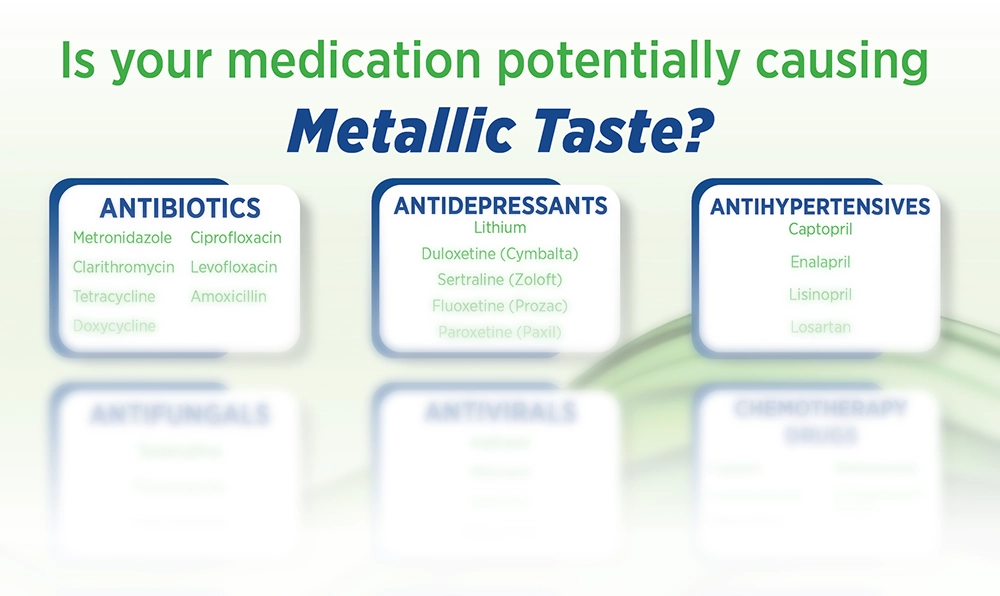

Have you ever noticed a strange bitter taste in your mouth that makes everyday life harder? This bitter taste in mouth can happen for different reasons. It might be due to acid reflux, not getting enough nutrients, or poor oral hygiene. Common causes for a bitter taste often relate to health problems, medications, or what you eat. If this issue is not addressed, it can affect your sense of taste and lower your quality of life. Understanding the causes of a bitter mouth is the first step to feeling better.
A bitter taste in mouth can come from many different reasons. Some causes are minor, while others can be more serious. Common reasons include problems with oral hygiene, stomach issues, and hormonal changes. These factors can change how our taste buds sense flavors.
Other reasons like medications and infections can also impact taste in the mouth. Finding the root cause is very important. This helps not just to ease symptoms but also to take care of any bigger health problems that might be present.
Maintaining good oral hygiene is important to prevent bitter tastes linked to dental problems. Tooth decay or gum disease can create bad smells and flavors because of bacteria buildup. Conditions like gingivitis can cause swelling, which leads to a sour or bitter taste.
Practicing good oral hygiene habits, like brushing your teeth twice a day and flossing, is crucial to reducing plaque and bacteria. If gum disease is not treated, it can develop into periodontitis, making the bitter taste problem worse. Regular visits to the dentist are important, as they can help find and treat these issues quickly.
Besides gum disease, problems with oral health, like cavities or even oral cancer, can also cause bitterness in your mouth. Using an antibacterial mouthwash can help cut down bacteria and bring back balance. Taking care of your oral hygiene not only removes bad breath but also helps you enjoy flavors in food again.
Starting a new medication can change your sense of taste. You might notice a bitter taste as a side effect. Many common medications, like antibiotics, antidepressants, and heart drugs, can interfere with how taste buds understand flavors. At the end of this blog, you will find a list of meds that cause metallic or bitter taste in your mouth.
A metallic taste or bitter mouth occurs when the receptors on your taste buds detect chemical compounds that resemble metals in flavor. This strange taste perception can result from various processes in your body or external factors. Treatments for cancer, like chemotherapy and radiation therapy, can also greatly affect taste perception by releasing trace amounts of metal ions into your saliva. These ions interact with your taste buds, producing that metallic flavor.
If you switch medications or talk to a healthcare provider about changing doses, it might help manage these side effects. Drinking enough water and sucking on sugar-free candies can offer temporary relief. If the bitter taste does not go away, you may need to get checked further. Taking care of medication-related taste changes quickly is important. It helps make sure your quality of life and eating habits stay good.

GERD (Gastroesophageal Reflux Disease) can cause a bitter taste due to stomach acid flowing back into the esophagus and sometimes reaching the mouth. This acid contains digestive enzymes and bile, which have a naturally bitter flavor. When these substances come into contact with your taste buds, they can create an unpleasant bitter sensation.
Living with GERD is tough, as symptoms like heartburn and a bitter taste disrupt daily life and sleep. Managing it demands strict diet changes, lifestyle adjustments, and medications, which can feel overwhelming. Despite the challenges, finding the right approach makes a big difference.
A diet lacking important nutrients can change how you perceive taste. Not having enough zinc and vitamin B can lead to a bitter taste in your mouth.
Making poor food choices or having strict eating habits can make these deficiencies worse. Pine nuts are healthy, but they can sometimes cause “pine mouth,” which brings a metallic taste that can last for weeks.
Here are some tips to help reduce a bitter taste in your diet:
Changing your diet can greatly help your taste buds work. Getting a good balance of nutrition is key for fighting bitterness and improving your long-term oral health.

A bitter taste in mouth can often come from what we eat or from common health issues. However, some specific conditions, like burning mouth syndrome and dry mouth, can also cause this problem. These issues can lead to a lasting bitterness that affects daily life.
If you have burning mouth syndrome, xerostomia, or oral thrush, you may need special treatments to address these concerns. Finding these problems early can help you recover faster and reduce complications. This way, you can regain your normal sense of taste.
Burning mouth syndrome causes a burning sensation in the mouth along with a bitter or rancid taste. It may be caused by hormonal changes, damaged nerves, or reasons that are not clear. Besides the nasty taste in mouth, some people may feel extra sensitivity to food, making it hard to eat comfortably.
Treatment options include products that help with saliva production and gels that numb the area to reduce burning sensations. Burning mouth syndrome can last for months and years and can go away as fast as it comes. Talking to a specialist can aid in finding the best treatment plan. By effectively managing this issue, people can enjoy eating and drinking again without pain.
Salivary glands are very important for our sense of taste and oral health. When someone has a dry mouth, which is also called xerostomia, they may notice changes in taste and a persistent bitter flavor. This usually happens because the body does not produce enough saliva. A dry mouth can affect how we taste food and can cause bad breath. For relief from Dry Mouth, using a product that contains Hyaluronic Acid (HA), like Lubricity products, can retain moisture for up to 4 hours. HA is known to attract moisture and lock it in, supporting a hydrated and soothing effect.
Oral thrush is a fungal infection that can cause a bitter taste in the mouth and lead to white patches and soreness. This yeast infection often happens when a person has low immunity, suffers from poor oral hygiene, or uses certain medications for a long time.
You can effectively treat oral thrush with antifungal medications. This helps reduce the bad taste it causes. Keeping good oral hygiene is important. Regular brushing, flossing, and cleaning dentures can help prevent it from coming back.
Neurological problems can cause nerve damage. This damage can change how you taste things, often making flavors taste bitter. Diseases like multiple sclerosis, Parkinson’s disease, or head injuries can harm the nerves that are important for tasting.
Taste buds need these nerves to send the right signals to the brain. When the connection is broken, it can mix up flavors. To handle feeling bitter, you need to treat the main neurological problem first. Effective treatment can help reclaim taste and remove bad flavors.
Diagnosing bitterness in the mouth means looking at your medical history and current symptoms. Doctors usually start with physical exams and may request blood tests to check for any issues or deficiencies. They might also do other tests, like imaging or checks on how you taste, to find out if there is nerve damage or inflammation. Teaming up with healthcare providers helps make sure the root cause is properly addressed.
Testing for bitter taste problems usually begins with a physical exam. After that, specific labs and testing protocols help find the main issue. Some tests might include blood tests to look for deficiencies, imaging tests to study nerves and tissues, or checks on how well you can taste.
Test | Purpose | Examples |
Smell Identification | Rule out smell issues | Essential oils test |
Blood Panel | Check for nutrient lack | Vitamin B and zinc levels |
Imaging | Find structural damage | CT scans or MRIs |
These tests help doctors create the right treatment options for you. By getting tested, your symptoms can be handled in a complete way.
Several simple remedies can help reduce a bitter taste in your mouth. Good oral hygiene is very important. Regular brushing and using an alcohol-free mouth rinse can help get rid of the bad taste. Drinking plenty of fluids is essential. This helps your salivary glands work better and can reduce dry mouth. You can also try targeted remedies, like rinsing with MetaQil, for some quick relief.
MetaQil is an easy-to-use mouth rinse. It helps give you relief from unusual flavors like bitter and/or metallic taste. The ingredients are gentle, which means it won’t cause irritation, instead it helps soothe your mouth. MetaQil is Sugar Free, Alcohol Free, Gluten Free, and Vegan Friendly.
Using MetaQil regularly can help soothe your sense of taste during tough times. If you have taste problems from medication, this rinse can help you get back to normal. A regular plan that includes MetaQil and good nutrition can mitigate bad tastes.
In conclusion, having a bitter taste in your mouth can happen for many reasons. It may be due to dental problems or other medical issues. Knowing what can cause this taste is important so you can manage it. You can try changing your diet, keeping good oral hygiene, or getting help from a professional. If the bitter taste keeps coming back or if you have other symptoms, it is important to talk to a healthcare professional. Your health is very important, and even small problems can make a big difference in how you feel.
Making small changes in your diet can help improve your taste. Try to eat less greasy and spicy food. Add more foods that are high in zinc, like nuts and seeds. Also, drink plenty of water. Including citrus fruits or vinegar-based items in your meals may help reduce any bitter or unpleasant tastes. Eating balanced meals can support your taste recovery.
Yes, MetaQil® Was Scientifically Developed & Is Proudly Manufactured In Buffalo, NY. Our innovative formulation provides instant, long-lasting relief and comfort for metallic taste symptoms and is made in the USA at an FDA registered facility.
